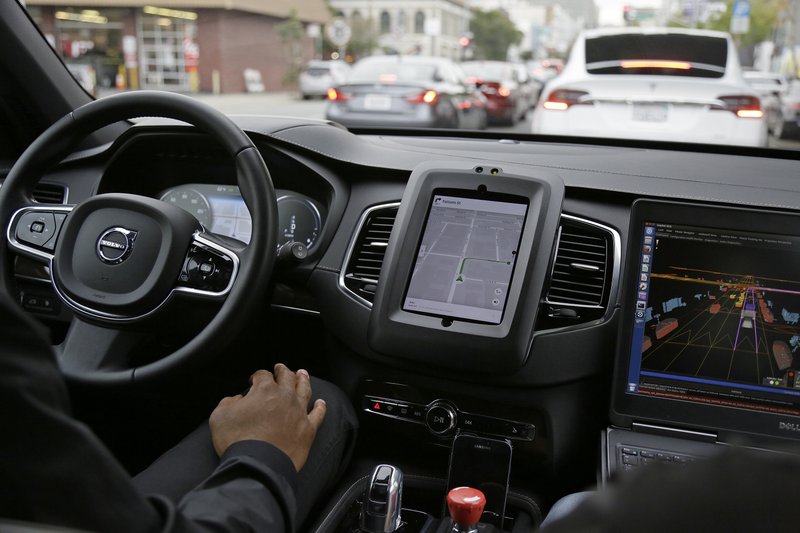California regulators met privately Thursday with officials from Uber to hammer home their demand that the ride-hailing company immediately stop picking up San Francisco passengers in self-driving cars -- or face legal action.
The safety of the vehicles became an issue almost as soon as they were released: Dash cam video posted online showed a self-driving Uber run a red light Wednesday, the same day the company launched the pilot program with several Volvo SUVs.
Publicly, both sides have dug into opposing positions. The state insists that Uber shut down the new self-driving service until it obtains a special permit for testing on public roads, while Uber says the cars are exempt from the permit requirement because they have a backup driver behind the wheel.
On Thursday, Uber said the driver was suspended and attributed the infraction in front of the San Francisco Museum of Modern Art to "human error." That was an apparent reference to the company's policy that employees behind the wheel of the cars constantly monitor them and be prepared to take over if the technology stops working, or is about to do something dangerous or illegal.
Uber offered the driver's failure as evidence of the need to continue pushing ahead a technology that proponents say will one day drive far more safely than humans.
"This is why we believe so much in making the roads safer by building self-driving Ubers," the company said in a written statement, which said the red light-running car was not one of those in its pilot program and was not carrying passengers.
Meanwhile, Uber continued to defy regulators by running the cars on the streets of San Francisco.
Getting a permit is not a complicated or lengthy process, and regulators would likely approve Uber's application, as they have permits for 20 other companies.
Instead, Uber has insisted that it will not apply out of principle, saying its cars do not meet the state's legal definition of an "autonomous vehicle" and therefore do not need a permit.
Though the cars are tricked out with sensors so they can steer, accelerate and brake, and even decide to change lanes, Uber says they are not nearly good enough to drive without human monitoring. And, according to Uber's reading of state law, that means they are not, legally speaking, "autonomous vehicles" that need special state permission.
Uber has pushed legal boundaries in the past. During its meteoric rise into a multibillion dollar company, Uber has argued with authorities in California and around the world about issues including driver criminal background checks and whether those drivers should be treated as contractors ineligible for employee benefits.
Both the California Department of Motor Vehicles and its parent transportation agency insist Uber is wrong -- and hours after the self-driving service's launch the state sent a letter saying the service was illegal.
Business on 12/16/2016
